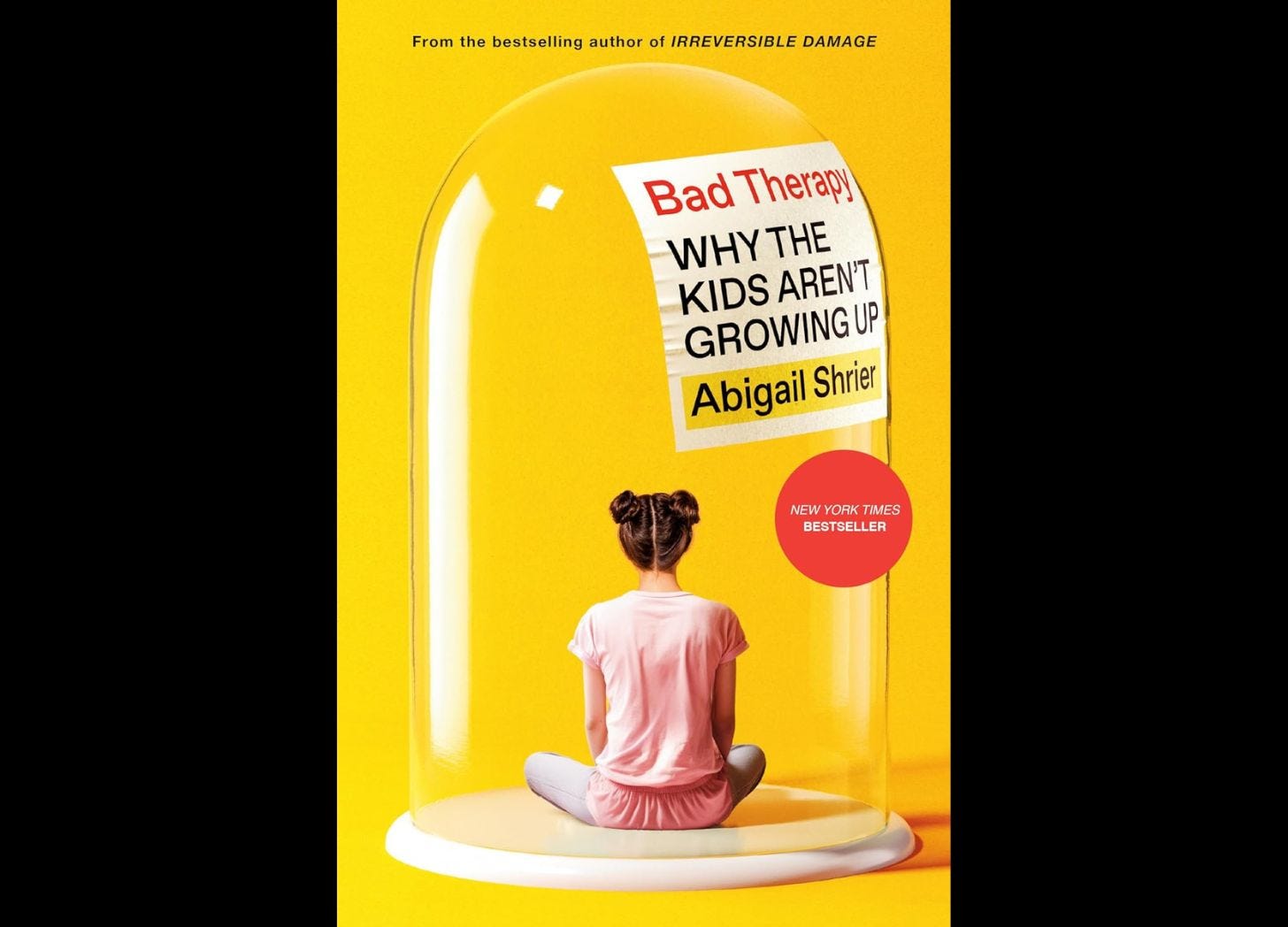Book Byte #170 "Bad Therapy" by Abigail Shrier
Why the Kids Aren't Growing Up
📣 Curious Quote from the Author
“When I agreed with my therapist, I told her so. When I didn’t, we talked about that. And when I felt I needed to move on, I did. Which is to say: I was an adult in therapy. I had swum life’s choppy waters long enough to have gained some self-knowledge, some self-regard, and a sense of the accuracy of my own perceptions.”
“Adults should be telling kids how imperfect and unreliable their emotions can be, Chentsova Dutton says. Very often, kids should be skeptical that their feelings reflect an accurate picture of the world and even ignore their feelings entirely. (Gasp!) You read that right: a healthy emotional life involves a certain amount of daily repression.”
“Therapy can hijack our normal processes of resilience, interrupting our psyche’s ability to heal itself, in its own way, at its own time.”
“Instead, with unprecedented help from mental health experts, we have raised the loneliest, most anxious, depressed, pessimistic, helpless, and fearful generation on record. Why?”
📚 Cognition of the Book’s Big Idea
Shrier contends that by extending the idea of iatrogenesis to the fields of parenting and mental health, our well-meant attempts to uphold and shield young people can be unintentionally encouraging a sense of vulnerability and powerlessness. Rather, the author challenges educators, parents, and other caregivers to find a middle ground between offering affection and support and fostering self-reliance, perseverance, and the capacity to grow from misfortune. Everyone who wants to see young people succeed must be aware of the dangers of being too protective of them and work to instill the attitudes necessary for them to face obstacles head-on and grow resilient.
My Software Stack: I use Skool for my Online Community Platform and ClickFunnels for my Landing Pages, Payments, and Email Sequencing. I use Substack for my Newsletter and Taskade for AI Note Taking/Second Brain/Project Management. I use my Personal Amazon Store for Tech and Book Recommendations.
Try out the "Think and Grow Rich Challenge" by Russell Brunson and Learn more about the First Self Help Author Napoleon Hill

